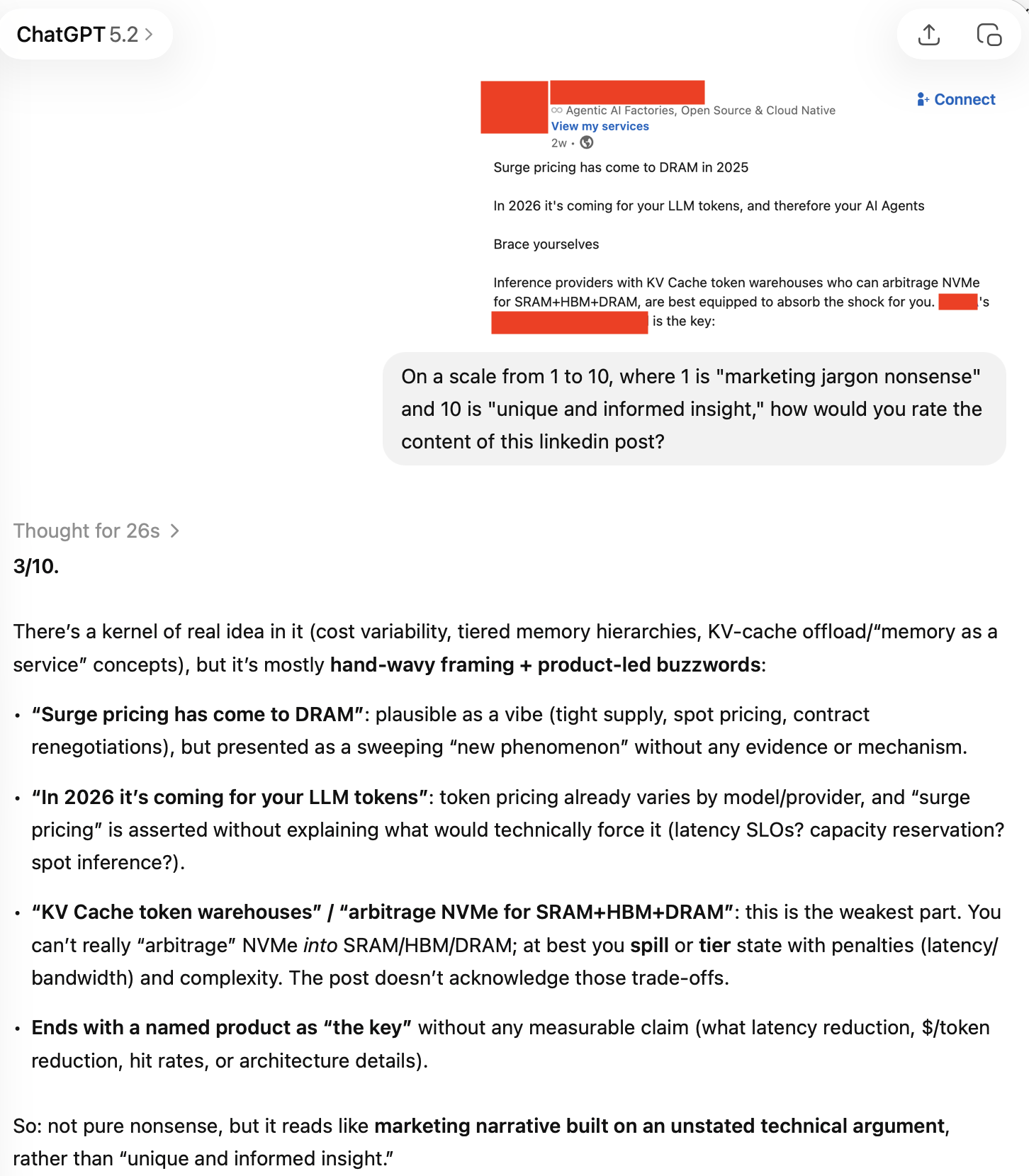Harry Frankfurt (1929–2023): American philosopher who reached a wider audience with “On Bullshit,” a prominent analysis of indifference to truth.
In this world we have two kinds of knowledge. One is Planck knowledge, the people who really know. They’ve paid the dues, they have the aptitude. And then we’ve got chauffeur knowledge. They’ve learned the talk. They may have a big head of hair, they may have fine temper in the voice, they’ll make a hell of an impression.
But in the end, all they have is chauffeur knowledge.
The Complex eventually becomes a full fledged self-sufficient ecosystem when people in group 4 are reviewing books by people in group 3 who are only tweeting people in group 2 who are appearing on the podcasts started by people in group 3.
Why do people do it?
This Bullshit Industrial Complex has always existed. But thanks to the precarious economics and job prospects of the creative person, it is often in a creative’s financial interest to climb the bullshit pyramid.
Being quiet and slowly building mastery and expertise doesn’t pay off much at first.
What are the tells?
In these pitches there’s nothing to suggest the person has any original experience or research or insight to offer said advice. Instead they choose to quote other people who quote other people and the insights can often be traced back in a recursive loop.
As someone who edits a website, there are red flags. The person will claim that they’ve written for site x and site y and have z twitter followers. This is coded language for “take me seriously, because other people have!”
See No true king.
Sites like Forbes, Huffington Post, and Entrepreneur Magazine have “open contributor” policies where almost anyone can get published with little or no editorial oversight.
those that believe being “industry famous” in the creative world is success in of itself. Especially those that start out with that goal in mind. This is where the Complex can poison talent. Being industry famous should be the result of some contribution to the world that the industry respects and wishes to learn from. Or insights unique and useful that it genuinely makes people’s lives better.
Increasingly “creative coaches” and people with “keynote speaker” in their Twitter bios are making their quest to earn authority a higher priority than the very reason they got into this in the first place.
If someone cares more about what their industry peers think of them than the problems they are solving, they’re a bullshitter.
when you make choices based on what others will think about you, you lose yourself along the way, and the world loses another creative mind that would otherwise share something original.
Who can best tell the difference between a Coral Snake and its Mimics? The Coral Snake itself.
The real thing knows a fake.
In The Art of Thinking Clearly, Rolf Dobelli offers some commentary on distinguishing fake from real knowledge:
…
True experts recognize the limits of what they know and what they do not know. If they find themselves outside their circle of competence, they keep quiet or simply say, “I don’t know.” This they utter unapologetically, even with a certain pride. From chauffeurs, we hear every line except this.
How do the authentic react?
Quote
Creative people often despise those that criticize work without having work of their own. Something Teddy Roosevelt referred to as “being in the arena.”
One notable passage from the speech is referred to as “The Man in the Arena”:
It is not the critic who counts; not the man who points out how the strong man stumbles, or where the doer of deeds could have done them better. The credit belongs to the man who is actually in the arena, whose face is marred by dust and sweat and blood; who strives valiantly; who errs, who comes short again and again, because there is no effort without error and shortcoming; but who does actually strive to do the deeds; who knows great enthusiasms, the great devotions; who spends himself in a worthy cause; who at the best knows in the end the triumph of high achievement, and who at the worst, if he fails, at least fails while daring greatly, so that his place shall never be with those cold and timid souls who neither know victory nor defeat.
Someone who is heavily involved in a situation that requires courage, skill, or tenacity, as opposed to someone sitting on the sidelines and watching, is often referred to as “the man in the arena”.
Fun examples
What amazes me is that bullshitters do not appear to know that they are bullshitters. If they did, wouldn’t they show some amount of self reflection?
